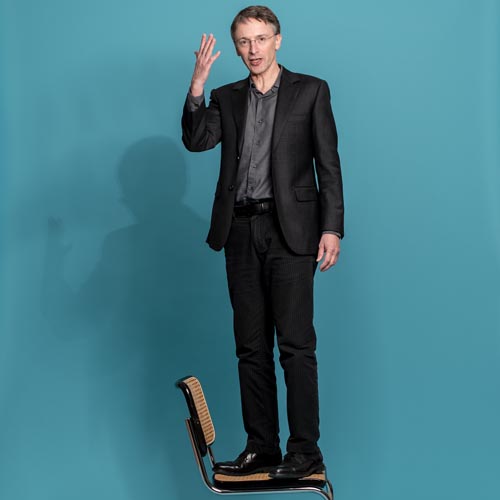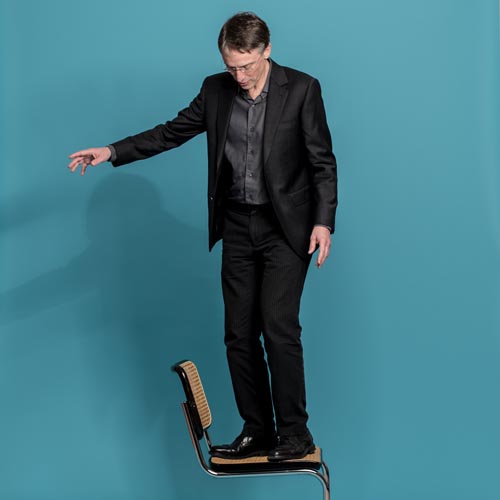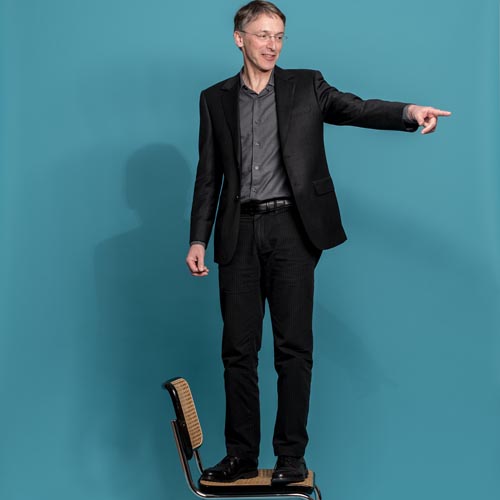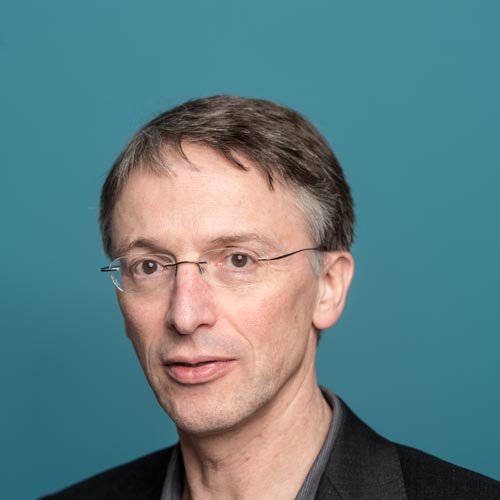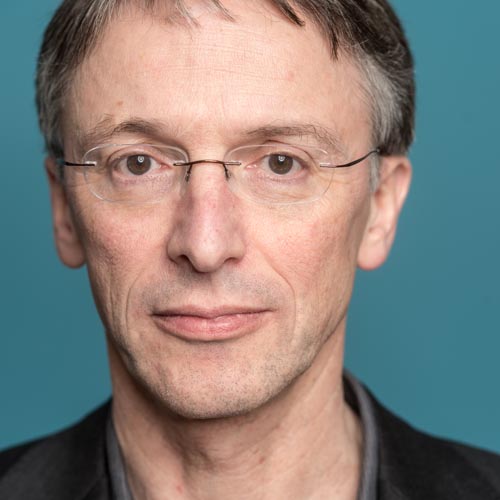Issue 9 / April 2014
The Art of Condensation - Yuri Slezkine
by Gerd Koenen
Perhaps Yuri Slezkine is just following the same intuitive recipe for success as Friedrich Torberg’s "Auntie Jolesch," title figure of Torberg’s wonderful little book Die Tante Jolesch oder Der Untergang des Abendlandes in Anekdoten (Tante Jolesch or the Decline of the West in Anecdotes). When asked for the secret to her highly praised "Krautfleckerln" (a dish consisting chiefly of cabbage and little square-shaped pasta), the Prague housewife is said to have answered that it was really quite simple – people just have to be kept a little bit hungry.
In terms of sequence and scope of his publications and the personal information he dispenses, Yuri Slezkine, Russian historian at the University of California, Berkeley, keeps people wanting more. This would seem to be diametrically opposed to the recipe for success in today’s academic game, where the motto “publish or perish” has become a desperate mantra. But it appears that Slezkine has defiantly scorned this recipe – though hardly to his own disadvantage and certainly not to the detriment of his readership.
Over the years their patience has been rewarded with a scholarly prose that conjoins laconic concision with sparkling aperçus, along with the constant referencing of literary sources (Slezkine’s formal academic training is that of a literary scholar) and surprising theoretical shortcuts. Despite his effortless style, Slezkine’s subject matter is of a weighty and even tragic import. In his best-known work The Jewish Century (Princeton University Press 2004) he sees Moscow during the Soviet era as a kind of lost Jerusalem for eastern-European Jewry. And also in his first monograph The Arctic Mirrors (Cornell University Press 1994) he writes of Russia’s encounter with its northern peoples, its “natives,” as it were, introducing his readers to a land entirely different from that which they have hitherto believed to have known.
Without betraying too much, Slezkine’s most recent project, a long-term one that he is working on as Fellow of the Wissenschaftskolleg, is a kind of micro-study of the first generation of Bolshevik leaders; or more precisely, a study of how they felt, what they thought and believed and how they lived in both the political and private spheres after their accession to power.
The physical interface of this private sphere and the politically loaded space of the Soviet Union was located in a gigantic building complex with 505 apartments that was erected in 1931 across from the Kremlin on the opposite shore of the Moskva River. A large portion of those in leadership positions in the Politburo, Central Committee, commissariats (ministries) and the military had moved here; but also well-known architects, artists, literati, scientists, aviators, polar explorers and certain select “shock workers” – all of whom were granted the special privilege of an apartment in this colossal edifice. So many prominent names, so many stories.
One may well call this a red aristocracy which aggregated in a concentric circle around the power center occupied by Stalin and his druzhina (his closest entourage), which lived in the Kremlin. And this elite that dwelled, suspiciously eyed by Stalin, on the river’s opposite bank and which consisted of “old Bolsheviks” and other powerholders in the regime was to become one of the primary targets of the Great Purge in the years 1937 and 1938. The “House of Government,” as it was known in common parlance, became a trap.
In the course of the terror campaign about 280 of the 505 apartments were temporarily sealed because their dwellers had been imprisoned, shot, or deported to the Gulag. The same fate was often suffered by their wives or dependents, their children being wrenched from their idyll and sent to orphanages. Stalin’s terror ultimately targeted one-third of all adult inhabitants of the complex – about 800 of some two and a half thousand men and women who lived here alone or with their families, with grandmothers and other relatives, with servants and governesses. Their successors moved right in after them, claiming furniture and other belongings of those “enemies of the people” who had just vanished. It is difficult to overlook an actual strain of cannibalism within this Stalinist power elite.
This story as such is well known – at latest by the 1970s when the prominent Soviet writer Yury Trifonov, himself the son of a man who disappeared during the Great Purge, published the roman à clef The House on the Embankment. It was in the Fall of 1989 that during a stay in Moscow I myself visited the small museum, which had been opened during the period of Glasnost by victims of Stalin’s terror campaign.
This museum still exists today. It exhibits the stolidly comfortable and somewhat old-fashioned furniture that once adorned these 3-5 room apartments of homogeneous design; and it is not without a show of pride that the modern heating and kitchen facilities are also on display. In addition one learns about the construction of this complex which was secluded from the outside world and offered literally everything: cafeterias, cafés, kindergartens, daycare centers, laundromats, tailors’ shops, beauty salons, grocery stores, consumer shops, a post office, a telegraph office, a bank, a library, a solarium, facilities for tennis and gymnastics as well as (bad omen!) a firing range in the basement. Much of this was free of charge, all part of the privileges and allocations bestowed upon the elect under Stalinism, and insofar one could truly assert that the residents of this massive building were indeed living “in communism.”
Just because a story is well known, though, doesn’t mean that its potential has been exhausted. Yuri Slezkine is using the construction of this building and its socio-cultural biotope as a metaphor for the Soviet state and its accelerated project of constructing a “new society.” The first, motley generation of revolutionaries who created this state, who lived in this building, and who in large part perished during the Great Purge, were, as Slezkine says, the true believers in the new Jerusalem. Some were descendants of the Russian provincial intelligentsia, some of the Jewish shtetl, some social climbers from the Russian or Ukrainian peasantry; and on rare occasions there were some genuine industrial workers.
But it is still open to debate how to describe the kind of intense and almost religious belief that Slezkine encountered in such a compelling fashion in the letters and diaries which survived their authors’ detention and in the interviews he conducted with surviving family members. One quickly bumps up against the limits of all those academic categories like “belief systems,” “transcendental experiences,” “millenarianism” and “political religions.” Rather we have entered here a mental world where the sacred was cheek by jowl with the profane and where the dream of salvation was riddled with enemies and traitors in a hundred masks – and perhaps also dwelling within one’s own breast.
On the other hand there were the children, the family, for whom Bolshevism could find no concept or place in its ideology apart from the precepts of healthy breeding and a strict upbringing. But how did these familial and primarily female inner worlds with their mothers, grandmothers and governesses – as well as their demands for a certain level of comfort – jibe with the rough and exclusively male outer world of politics, economics and the military? And how does one explain that the educational system, particularly in the early school years, lavished far greater attention on mythical figures of the traditional literary canon such as Alexander Pushkin than it did on, say, Karl Marx? Slezkine’s study promises a deeper and more focused albeit perplexing glimpse into the mental makeup and life scripts of this Bolshevik founding generation.
The heart of the Soviet Union was and remained a Russia whose history as a multinational state has once more made it the subject of headline news. Yuri Slezkine grew up in Moscow and in the late 1970s traveled to Mozambique in his capacity as a translator from Portuguese (!) to Russian; from there he journeyed to Lisbon and then, armed with a Portuguese passport, on to the United States. His travels enabled this academic nomad to revisit his Russian homeland after 1989 with a modified and even altered view of matters. For instance in post-colonial Africa he had seen the relationship of old tribes to new nations and the interaction between foreigners and indigenous peoples, between African crop farmers and Indian merchants and academics (“the Jews of East Africa”).
And it was perhaps this experience that impelled him to seek an understanding of Russian history by way of its frontiers and colonial lands, through the unusual prism of the “Arctic Mirror,” recounting that long history of encounters between tribes and traders, shamans and researchers – a history which attained a new dramatic intensity during the Soviet period with its many twists and turns. By way of transcending established historical or linguistic categories, Slezkine was now cutting his teeth on ethnological findings and concepts, and it was this combination that ultimately produced the wonderful introductory chapter to The Jewish Century – “Mercury’s Sandals: Jews and Other Nomads” – in which he portrays the relationship between “Apollonians” and “Mercurians” as a surprisingly uncomplicated, view-broadening key to understanding the developmental history of nearly all human societies (how exactly, is best to read for yourself).
Yuri Slezkine would presumably second the notion that all history is personal. "Lives as Tales" is his – again – succinct and lucid introduction to In the Shadow of the Revolution (Princeton University Press 2000), a collection of stories of women in the wake of the Russian Revolution that he edited together with Sheila Fitzpatrick. He dedicated The Jewish Century to both of his grandmothers, one of whom was born into an aristocratic family of Cossack ancestry and who lost everything in the Revolution and then still died a loyal Soviet citizen; whereas the other, the Jewish grandmother, born to a poor family in the Pale of Settlement, who had staked everything on the Revolution and the building of socialism, looking back on her life perceived it as a failure and was now proud of the Jewish heritage she had scorned earlier.
It is the contradictory history of his grandparents’ generation, and thus of his own origin, that Yuri Slezkine is attempting to break down into its component parts, neither allowing himself to be transfixed by the Medusa-like gaze of the Great Purge nor by the siren-chants of Russian hymns. But he doesn’t simply avoid or ignore their suggestive impact either. All this requires time, repose, and concentration. We are waiting with anticipation.
More on: Yuri Slezkine
Images: © Maurice Weiss
